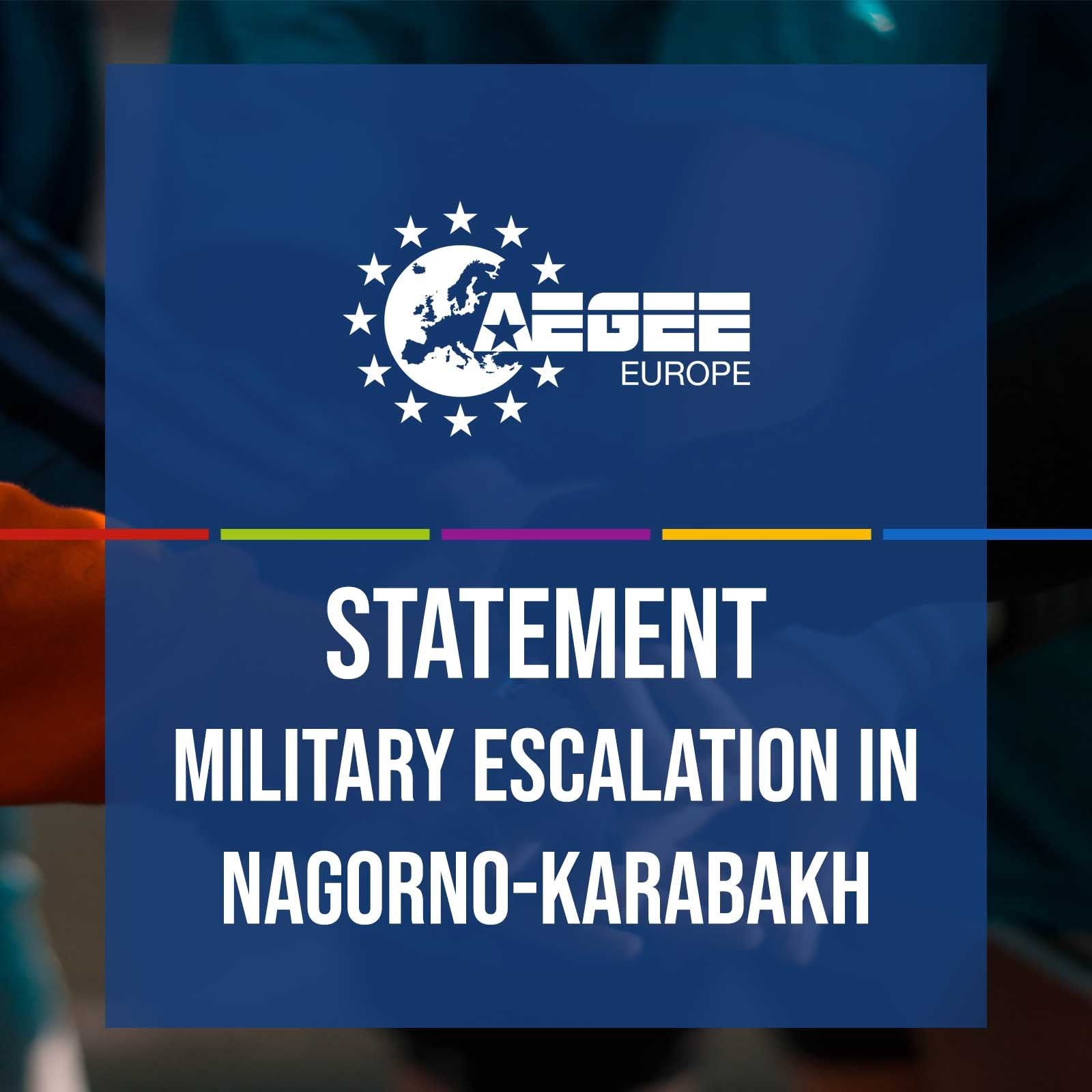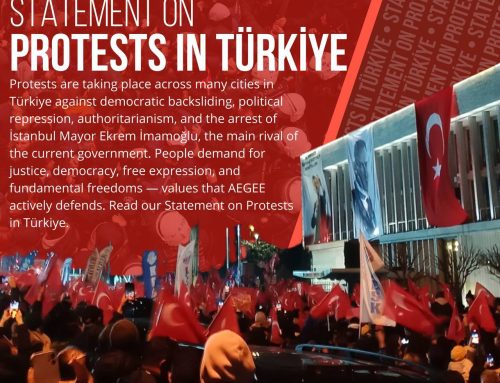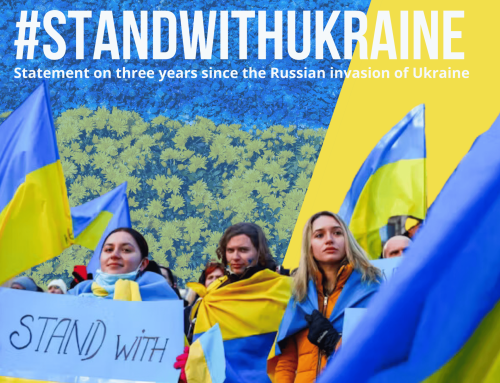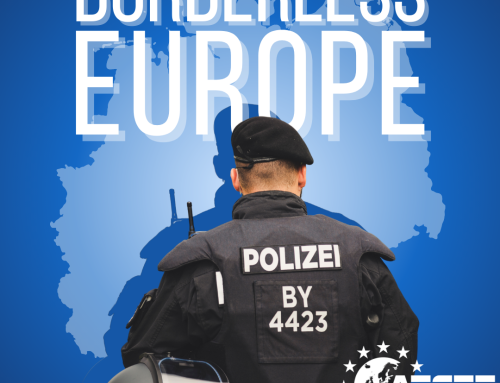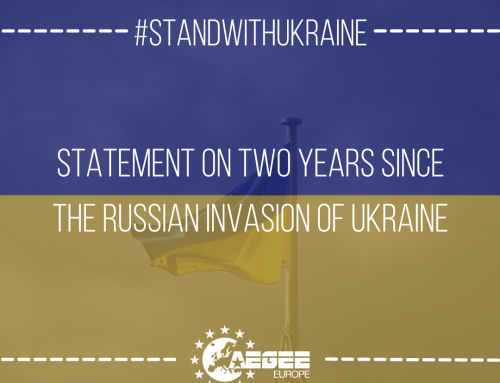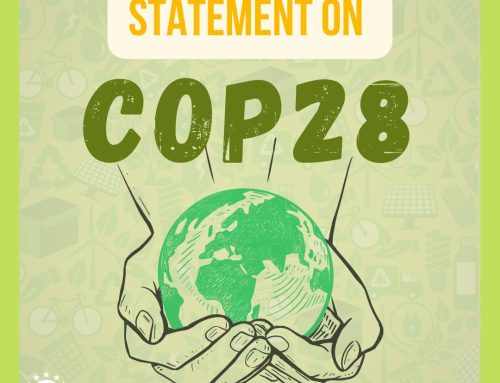One week ago, a long-standing conflict between Armenia and Azerbaijan flared up again resulting in military escalation. The Nagorno-Karabakh region constitutes the center of the conflict. The disputed territory is internationally recognised as part of Azerbaijan and has an Armenian ethnic majority which in February 1988 declared their de facto independence, which has not been recognized up to date.
The region has been subject to devastating war from 1988 to 1994, which led to the intermediate ceasefire agreement of May 1994 and an ongoing frozen conflict over the past decades. There has been only episodic diplomatic successes within the frameworks of multilateral platforms under the auspices of the OSCE Minsk Group (co-chaired by France, Russia and USA). The 1994 ceasefire agreement has been violated in the past decades leading to multiple small and large military escalations. In 2016, the conflicting parties had victims and casualties to the conflict as a result of the so-called Four-Day War or April War.
In the last month, tensions in the region have ratcheted up again and on the 27th of September 2020 the standoff escalated, causing a large-scale military confrontation. The governments have accused each other of escalating the situation and initiating the military attacks, and imposed martial law within their respective countries. Moreover, all engaged parties have stated that civilians have been killed, infrastructure and peaceful settlements have been damaged in the attacks and shellings from both sides. However, the exact number of casualties on either side have not been officially confirmed from an independent source.
AEGEE stands for the values of democracy and strives for a diverse and borderless Europe. We believe in mutual understanding and breaking borders, both physical and mental. Borders can be broken in dialogue, respectful exchange of opinions and peaceful resolution processes. Thus, we firmly believe that military interventions can by no means be considered a solution to settle any type of dispute.
Therefore, AEGEE strongly condemns any acts of violence carried out in the Nagorno-Karabakh region by the involved actors. AEGEE vigorously opposes any military activities and solutions leading to a saddening death toll among the parties engaged and the civilian population.
AEGEE joins and supports the European Union, the Council of Europe, the OSCE, the UN, and the Eastern Partnership Civil Society Forum in their positions calling for an immediate cessation of hostilities and return to the negotiation table.
Furthermore, AEGEE-Europe, AEGEE-Bak?, and AEGEE-Yerevan call on the involved actors and all engaged parties:
- To cease immediately the ongoing military activities and to strictly commit to the agreed upon cease-fire regime in order to prevent more harm being done and lives being lost.
- To restart and resume a diplomatic dialogue with the goal to bring peace to the region under the auspices of the internationally recognized umbrella of the OSCE Minsk Group.
- To activate exchanges between civil society, media and especially youth NGOs to boost mutual understanding, trust and confidence building between the conflicting societies.
- To recall the third parties and regional powers to avoid rhetoric and actions which could lead to further escalation of the situation.
Moreover, AEGEE wants to encourage young people in the region to start a dialogue themselves. We see youth as a driving force, so we strongly believe that we can overcome conflicts if they come together and start an exchange. We are confident that the peace between Armenia and Azerbaijan is inevitable.
Sources:
- https://www.diplomatie.gouv.fr/en/country-files/azerbaijan/news/article/statement-of-the-presidents-of-the-russian-federation-the-united-states-of
- https://eap-csf.eu/project/steering-committee-statement-escalation-conflict-nagorno-karabakh/
- https://www.un.org/sg/en/content/sg/statement/2020-09-27/statement-attributable-the-spokesman-for-the-secretary-general-the-nagorno-karabakh-conflict
- https://eeas.europa.eu/headquarters/headquarters-homepage/85862/nagorno-karabakh-statement-high-representativevice-president-josep-borrell_en
- https://news.un.org/en/story/2020/09/1073992
- https://ec.europa.eu/neighbourhood-enlargement/news_corner/news/nagorno-karabakh-statement-high-representativevice-president-josep-borrell_en
- https://www.coe.int/en/web/portal/-/secretary-general-warns-of-humanitarian-crisis-in-nagorno-karabakh?fbclid=IwAR3Kh9DNf2lt7ThZ-AXBH3enlfNwpNPg-wM5IDUBrGYUd-jj30TdQKoxdiA
- https://www.osce.org/minsk-group/465018
- https://www.osce.org/chairmanship/465021
- https://www.osce.org/parliamentary-assembly/465036
- https://www.dw.com/en/armenia-azerbaijan-conflict-death-toll-rises-in-nagorno-karabakh/a-55077936
- https://www.politico.eu/article/the-nagorno-karabakh-conflict-explained-armenia-azerbaijan/?utm_source=POLITICO.EU&utm_campaign=02961b0da0-EMAIL_CAMPAIGN_2020_09_29_04_56&utm_medium=email&utm_term=0_10959edeb5-02961b0da0-190076005
- https://www.bbc.com/news/world-europe-54314341
Further Reading:
- UN Resolution 822: https://undocs.org/S/RES/822(1993)
- UN Resolution 853: https://undocs.org/S/RES/853(1993)
- UN Resolution 874: https://undocs.org/S/RES/874(1993)
- UN Resolution 884: https://undocs.org/S/RES/884(1993)
- Bishkek Protocol: https://peacemaker.un.org/armeniaazerbaijan-bishkekprotocol94
- Madrid Principles: https://www.osce.org/mg/5115

